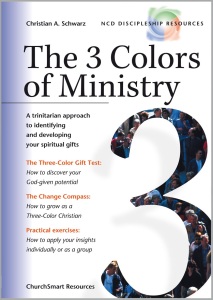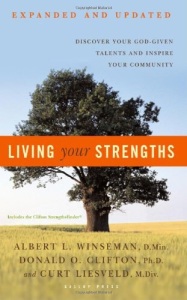George W. Bush. Paul the Apostle. Boromir. Dana Scully. What do they all have in common? Supposedly they are all Myers-Briggs
ESTJ (Extravert, Sensing, Thinking, Judging) personality
 types: strong
willed, organizers, guardians, creators of order, and reliable. How
they got Boromir or Scully to take the test is beyond me. ESTJs are also
apparently stubborn, judgmental, struggle with unconventional
solutions, and have difficulty relaxing. I am an ESTJ personality type
though I am a borderline Intravert/Extravert. I'll admit to most of the
above (except I am also lovable).
types: strong
willed, organizers, guardians, creators of order, and reliable. How
they got Boromir or Scully to take the test is beyond me. ESTJs are also
apparently stubborn, judgmental, struggle with unconventional
solutions, and have difficulty relaxing. I am an ESTJ personality type
though I am a borderline Intravert/Extravert. I'll admit to most of the
above (except I am also lovable).
I have been assessed and tested
lots over the years as various tools rolled through my workplaces.
Sometimes useful for understanding workplace dynamics, others examined
my teaching, learning, or leadership styles.
Another sort of
assessment explores your gifts and strengths. I have used assessments
like these in churches to help people explore volunteer opportunities.
These assessments tend to be of two types: spiritual gifts or natural
talents. The first looks at the talents and gifts described in the
Bible. The New Testament Letter to the Romans, for
example, lists seven gifts/talents to serve the church: prophesying,
serving, teaching, encouraging, giving, leading, and showing mercy.
 One of these skill tests was The 3 Colors of Ministry that
uses 180 questions to rank 34 different gifts/talents. When I took
that test my strengths were: teaching, wisdom (!), missions,
discernment, and pastoring. The tests provided definitions and
descriptions of each of these gifts, as well as blind spots and tips for
developing the gifts. Teachers in the church could lead a small group
Bible study (as I do) or teach classes and seminars. Teacher types are
warned that they must be careful to live what they teach, take the time
to prepare effectively, and continue to be a learner.
One of these skill tests was The 3 Colors of Ministry that
uses 180 questions to rank 34 different gifts/talents. When I took
that test my strengths were: teaching, wisdom (!), missions,
discernment, and pastoring. The tests provided definitions and
descriptions of each of these gifts, as well as blind spots and tips for
developing the gifts. Teachers in the church could lead a small group
Bible study (as I do) or teach classes and seminars. Teacher types are
warned that they must be careful to live what they teach, take the time
to prepare effectively, and continue to be a learner.
 The other
type of test considers natural talents and abilities discovered through
extensive surveys and testing. These aren't particularly religious but
can be applied to a religious context like a church.
The other
type of test considers natural talents and abilities discovered through
extensive surveys and testing. These aren't particularly religious but
can be applied to a religious context like a church.
Living Your Strengths
by Winseman and Clifton is one of these. Built on the Gallup Clifton
Strengths Finder research, these tests are used in companies to build
work teams. The
test is built on the premise that we are often too focused on our
weaknesses when we should be building on our strengths. I ran across
this test in a local church that uses it to help people find where they
can serve best in their church.
I took the test and discovered my
strengths were, in order: (drum roll...) Analytical, Input, Learner, Belief, and Responsibility. Different categories from the 3 Colors
test but with conceptual overlap. In a nutshell (!), I question and
investigate because I need to know, I collect information, and I love to
learn. Winseman and Clifton suggest that people with these strengths
don't like contradictions, or "wishful" or "clumsy thinking." However if
not careful can be harsh in their critique. They can collect far too
much information. They have a belief system that includes strong ethics, and a
need to take personal responsibility ("my good name depends on it.")
Their work must mesh with their values and must be meaningful. Oh, and
they probably over commit. Boy, that does sound a lot like me. Kind of
creepy when these tests are accurate.
There are lots of tests
out there; some better than others. Though these are useful to develop self-understanding, I've often found the best test to
determine your strengths and weaknesses is a group of wise friends who
know you well enough to tell you what they see, and to whom you will
listen. Churches, when they work well, are good places for that.
Sunday, September 27, 2015
Self-Discovery: there is a test for that!
 9/27/2015 10:33:00 PM
9/27/2015 10:33:00 PM
 David Michels
David Michels
Subscribe to:
Post Comments (Atom)







0 comments:
Post a Comment